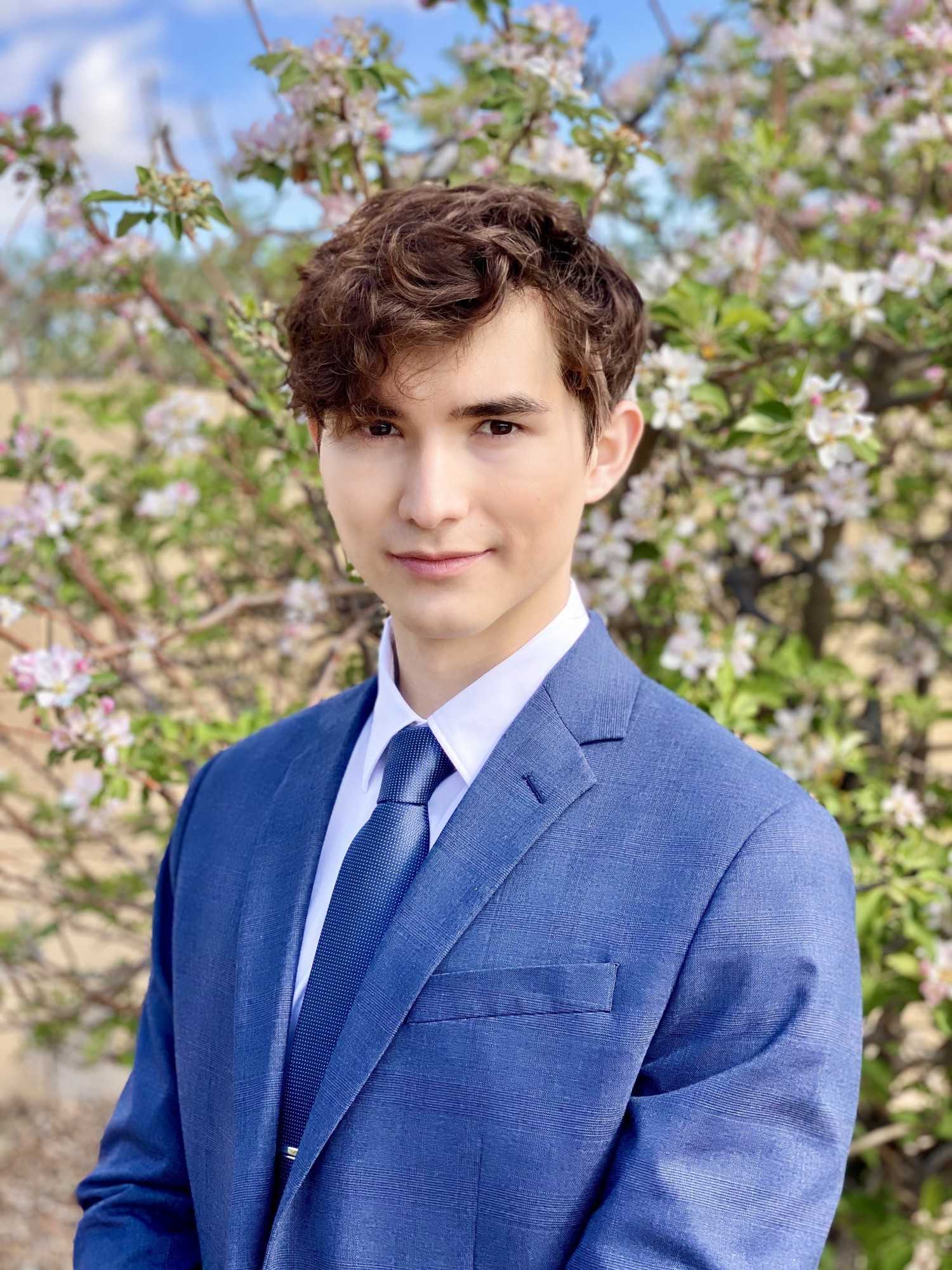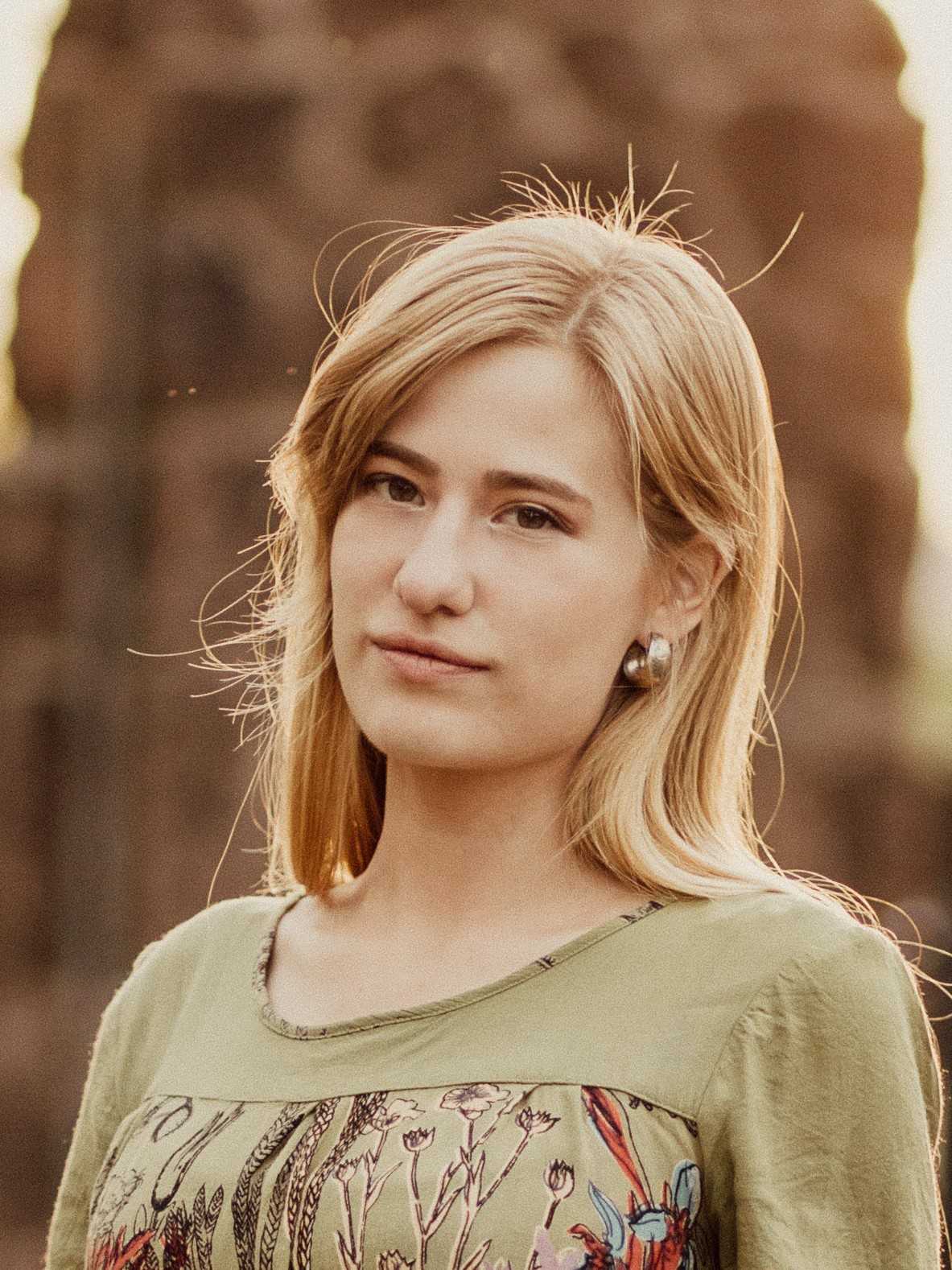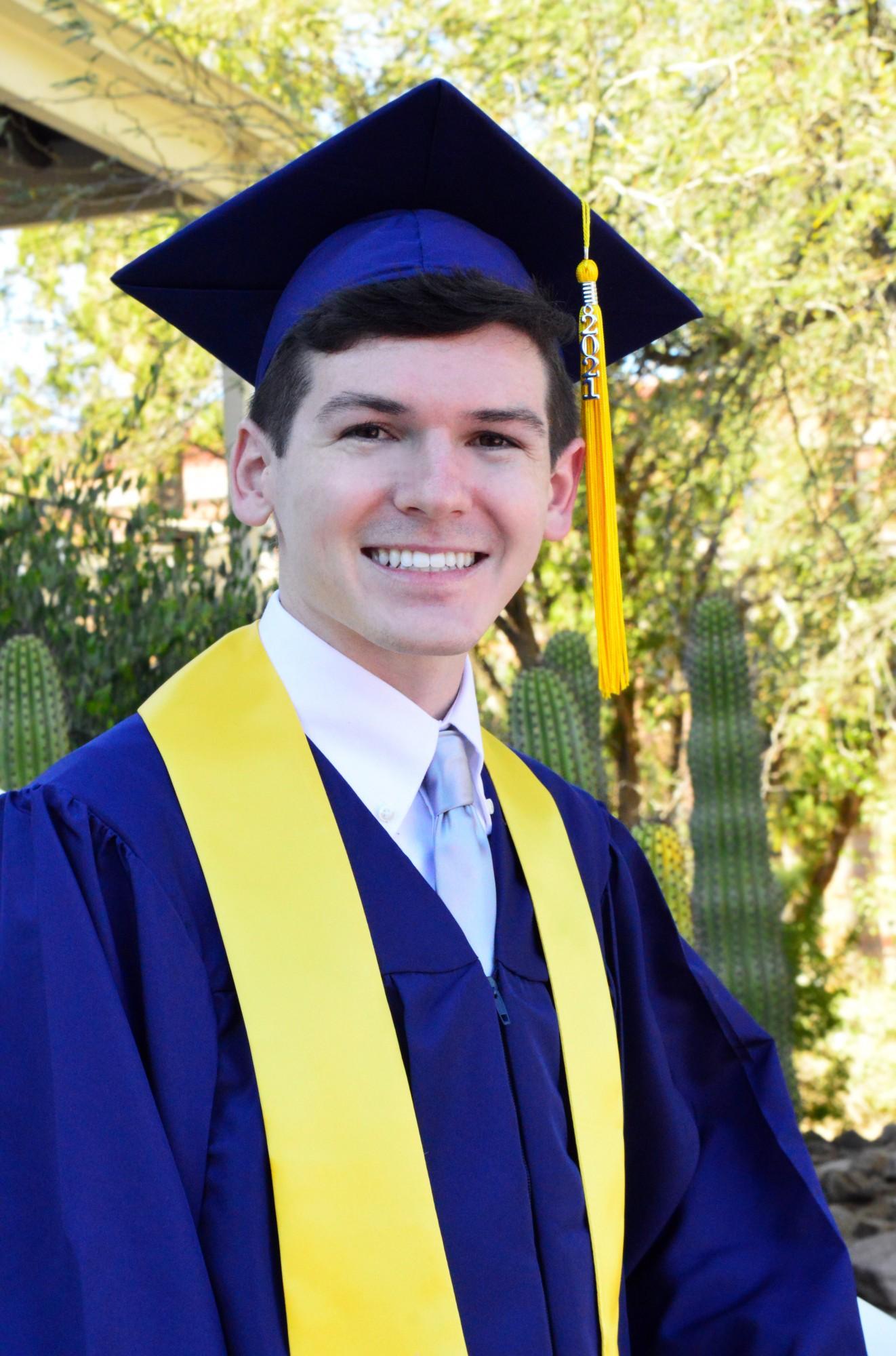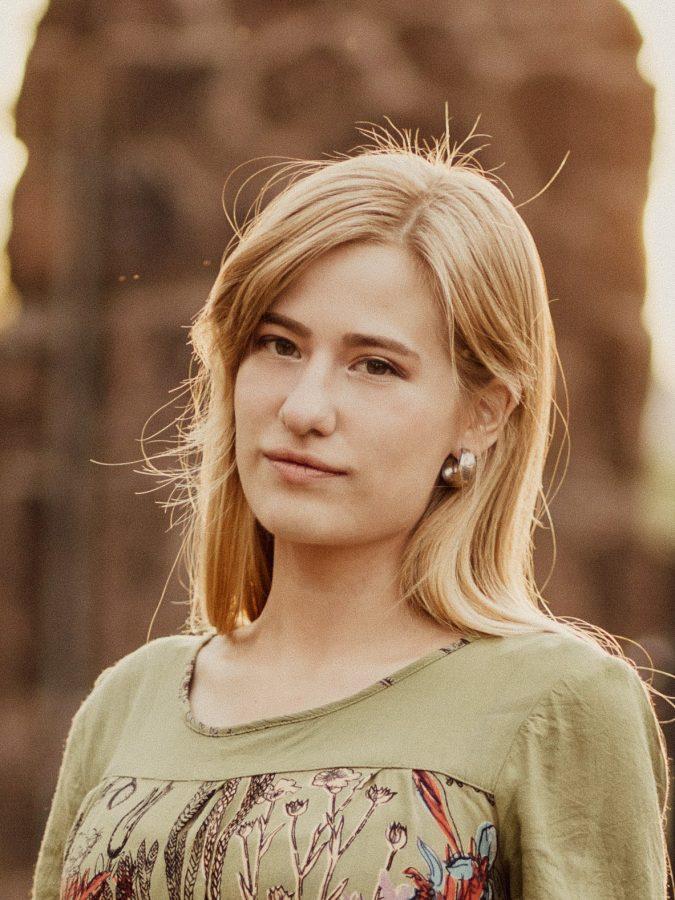Daniel Wieland, Emily Allerton and Jason Kronenfeld were named some of the University of Arizona’s Outstanding Seniors for their academic achievements and involvement in the UA community and beyond. As graduation comes closer, these three UA students are excitedly awaiting their future education in the medical research fields.
RELATED: UA researcher and his grandfather work together on latest research
Biochemistry Outstanding Senior: Daniel Wieland

Daniel Wieland was announced the biochemistry Outstanding Senior, as a triple major in biochemistry, molecular and cellular biology and biomedical engineering.
Having previously established credits helped him to finish three majors and a math minor in the typical four-year time frame.
“I took so many AP [courses] in high school. I was that kid,” Wieland said.
Initially, Wieland started his time at university as solely a biochemistry major. But with just biochemistry courses, his class schedule would have averaged about 12 credits a semester, which was not even enough to keep his scholarship.
After taking on two more majors, Wieland had semesters where he was taking 25 credits.
“It’s definitely a challenge, you make sacrifices,” Wieland said.
Wieland has been involved in research at the UA as well as other campuses including Brown University and the University of Pennsylvania.
“Making good connections is always really essential,” Wieland said.
In the midst of his senior final project, Wieland was working on coding for a web application, which can be used for uploading information from sequencing data. When applied to lung samples of those affected by COVID-19 and intubation, the sequencing data depicts certain bacteria.
The app will then create a report based on the sequencing to show what bacteria is present.
“For a physician, looking at it, they can immediately tell what [the patient] is infected with and how they should proceed,” Wieland said.
Wieland described this senior engineering project as translational and time-relevant.
As for after graduation, Wieland said he was hoping to attend the Mayo Clinic for their M.D.-Ph.D. Program, where he was waitlisted.
“I’m not entirely sure what I’m going to do, I guess that all depends on the next couple of months,” Wieland said.
College of Humanities Outstanding Senior: Emily Allerton

Emily Allerton grew up in Tucson, homeschooled by her parents who emphasized pursuing personal interests. Allerton had the flexibility to explore science, linguistics and different forms of art and storytelling.
Allerton pursued the same childhood interests through her triple major in Neuroscience and Cognitive science, Russian and Slavic Studies and Creative Writing.
Allerton said that as someone with dyslexia, she has always been inspired to learn about the brain. The UA’s Neuroscience and Cognitive science program caught Allerton’s eye when she was in middle school.
Allerton had to work hard as a student due to her struggles with dyslexia and encephalitis that affected her cognitive ability for two years.
When Allerton’s health was affected and school was difficult, she said that staying connected with the UA community and getting support from close friends and family were what kept her going.
After high school, Allerton took a gap year to work in Ecuador in the humanitarian field. Allerton returned to Tucson, working 80 hours a week to save money for college.
But after becoming ill, Allerton’s financial debt rose from the cost of medical bills. Educational loans were not an option.
“I’ve been blessed beyond belief to have been able to find jobs and have aid like the Pell grant and other scholarships to make graduating a possibility,” Allerton said.
Allerton has taken advantage of UA’s broad array of extracurricular programs including joining leadership of Tau Sigma National Honor Society, research at the SanGiovanni Laboratory, shadowing doctors and even an independent study on traditional medicinal plants.
To squeeze three majors into a four-year span, Allerton took 21-24 credits for a few semesters. Spreading classes out over the summer and winter also helped to alleviate the course load.
Additionally, Allerton took classes at Pima Community College while she was still in high school, which transferred as dual enrollment credits for the UA.
Allerton’s last year in undergrad was affected by COVID-19, but despite the virtual barrier, Allerton made fun memories even in Zoom class. While quarantining, Allerton got pet ducks.
“When they were ducklings,” Allerton said, “they required around-the-clock care so they lived in my room and made both planned appearances and unplanned noises in my classes.”
After graduation, Allerton said that she wants to become a physician-scientist in integrative psychiatry. Allerton said she specifically wants to research traditional plant medicine for the treatment of neuroinfectious and neurological diseases.
RELATED: Arizona is opening back up. Here’s how UA students are reacting
Allerton contributed plant medicine to her own health recovery, saying that it is also a big part of her family’s culture.
“Plant medicine is an amazing resource in biomedical and environmental sciences that deserves respect and consideration,” Allerton said.
As a semi-finalist for the Fulbright Scholarship, Allerton may have the opportunity to study medical ethnobotany in Kazakhstan.
“Keep your fingers crossed,” Allerton said.
Chemistry Outstanding Senior: Jason Kronenfeld

Jason Kronenfeld began as a chemistry major at the UA in 2017.
Throughout his four years, Kronenfeld conducted research with the Renquist research group and already published work for one research project with another one in the publication process.
Kronenfeld appreciated being able to take some of the mystery out of science.
“Science isn’t magic,” Kronenfeld said. “As long as we can communicate science in a way that others can understand, that’s how we go on from here.”
For the first two and a half years of his research, Kronenfeld studied the effect that cows get during heat stress, in which the cows do not produce as much milk and therefore its efficacy is lower than one would need for average production.
“This is a major problem with global warming. We’re seeing milk production go down,” Kronenfeld said.
Kronenfeld also researched the association of two negative side effects of some obese individuals: type 2 diabetes and hypertension. He said his research involvement has made his UA experience his own.
“I’ve always found a way to balance school, having friends, having a work-life balance and doing plenty of things outside of class,” Kronenfeld said.
RELATED: A beacon of hope in the fight against hepatitis C, other medical breakthroughs
Even with a French and a math minor, Kronenfeld said that because of AP and dual credit in high school, he was able to finish his two minors by the beginning of junior year.
Kronenfeld was a Resident Assistant at the UA for most of his time in undergrad. The group of resident assistants frequently went hiking on the weekends.
“It’s just nice to get out and explore the mountains around here,” Kronenfeld said.
Kronenfeld just recently accepted an offer of admission for a Ph.D. in chemistry at Stanford University. Kronenfeld said he would probably be continuing in chemical biology but will have the option to explore other subjects like organic chemistry.
Follow Bellah Nelson on Twitter















